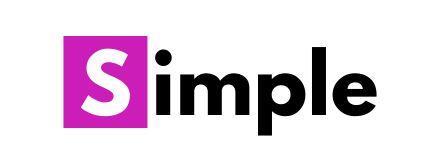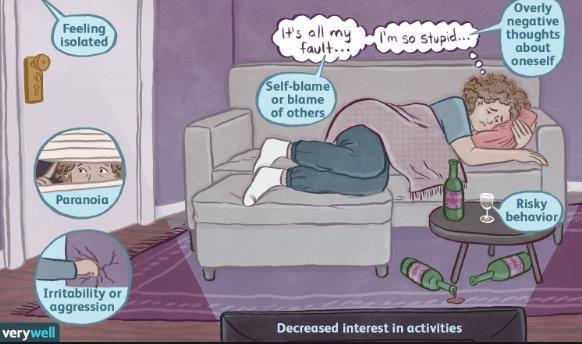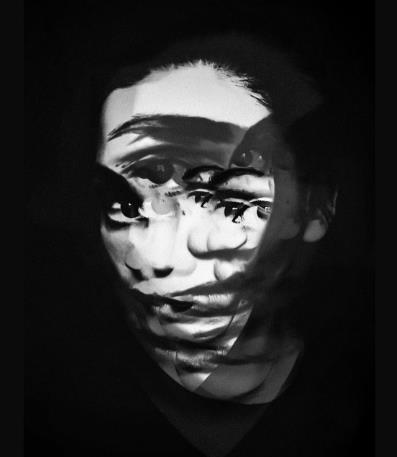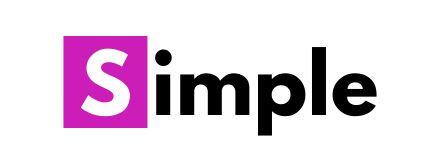
19 minute read
Main findings

*Samen hier (Netherlands) “living room” festivals were organized in a number of Dutch cities where
Advertisement
newcomers opened their homes to neighbors. FINDING YOUR WAY IN A NEW PLACE: IT IS EASIER WITH
OTHERS. Together Here refugees offer a social network based on this idea. For informative encounters and inspiring friendships. This accelerates the integration of newcomers. The matching is done through a special app that the Canadian research team designed after studying social networks.
Together Here is also a pilot. They want to know whether the method from Canada can also be successful in the Netherlands. www.samenhier.nl A German organisation Koofra (https://www.koofra.de/) offers an individual psychosocial support/counselling from a cultural mediator (someone belonging to the same community as the client and in his/her native language. For security reasons the clients of Koofra e.V are not allowed to meet in groups. The clients and the cultural mediators meet in public spaces and work on their integration and well-being in the German society. Job "godfather" or "godmother": this project pairs the mother searching for a job with a volunteer with experience in the same sector. Goal-oriented individual assistance and support in the reorientation in the labour market. Individual coaching sessions they assist in the search for individual strengths and skills and create an action plan in order to achieve the set goals (https://www.diakoniehamburg.de/de/visitenkarte/stadtteilmuetter-plus/berufseinstieg/index.html).
Finding your way in a new place: it is easier with others. Together Here refugees offer a social network based on this idea. For informative encounters and inspiring friendships. This accelerates the integration of newcomers.
SPORT Sport and physical activity as resources for creating a “society of cultures”, Bologna, https://www.bolognacares.it/wp-content/uploads/2018/04/AeM_84_editoriale.pdf. Kicking Girls, Integration through Sport, https://www.kicking-girls.info/. Integration of girls in their school system and in society through participation in a team sport such as football together with other girls with a migration background as well as girls without said background. Main objectives: teaching to have fun trough sports, reinforcing their self-steem, teaching fair play, personality development.
Field Research
Field research aimed at providing in – depth data directly from the practitioners working with newcomers regarding actual practices, the existing gaps, how existing tools can be improved. Professionals gave insight into the use of non-verbal tools in expressing trauma and challenges. All operators participating in the research supported us in the development of an innovative approach facilitating the narration of past difficult events and thereby benefitting women’s psychological and emotional wellbeing. Implementation of this activity involved the identification of the organisations that would provide the most suitable information for the project. This interview was carried out around a few open - ended questions and took about 1 hour. All the information are treated confidentially and no personal data or information are disclosed or otherwise used except for research purposes. In total, more than 50 interviews were carried out: Sweden 10, Italy 11, Spain 10, UK 10, the Netherlands 10.


The number of encountered organisation contacted for the interview is much higher, estimated to 80. Interviewee profile – who participated in the research? Social workers involved in the reception process, immigration agents, researchers in the field, operators for asylum seekers and refugees, social assistants involved in guidance on the local territory, psychologists, intercultural mediators, and legal advisors, artists, creative thinkers. Main findings
Regarding the DIFFERENCES IN NEEDS of the psychological support between men and women: All of the interviewees involved in the research in Spain reported about the differences in needs of the psychological
support between men and women. IN PARTICULAR, THEY REPORTED THE MIGRANT MEN AS SEEING THE TRIP AS AN ADVENTURE AND ARRIVING AS A VICTORY. WHILE FOR WOMEN IT WAS A HIGHLY TRAUMATIC EXPERIENCE OF ABUSE, particularly for those women that have passed Libya to arrive.


The agents involved in the reception of newcomers in Italy see the DIFFERENCES IN NEEDS ROOTED IN ONE’S PERSONALITY, DIFFERENT CULTURAL BACKGROUND AND INDIVIDUAL CAPACITY TO FACE AND OVERCOME DISTRESS than just characteristics connected with the gender. The resilience capacity leads each beneficiary to react to difficulties in an individual manner. This conclusion has been confirmed also by the research findings in Germany. The operators that have tested different METHODOLOGIES reported that the results are much better if you implement SEPARATED WORKSHOPS as women do only speak and refer to their experiences using a lot of EMPATHY and WORKING WITH OTHER WOMEN. The agents reported that many of them are not able to recognise the trauma when they arrive. The researchers agreed and added that for women it is important to WORK WITH SYMBOLS, PICTURES in a way they can recognise and reproduce their trauma from a “dissociative” perspective.
It rather depends on the circumstances of a person’s journey and personal history more than on their gender
According to the interviewee’s feedback, almost ALL NEWCOMERS FACE DISCOMFORT, DIFFICULTY OR EVEN INCAPACITY IN EXPRESSING AND DESCRIBING PAST EVENTS. Migration is often a traumatic experience, in every phase of the migratory journey from pre - migration to resettlement. The majority of migrants face terrible trauma before, during, and after migration. This trauma can manifest itself in many ways such as aggression, insomnia, suicidal thoughts, and depression. However, migrants often can find the means to cope with their troubles focusing on family or practicing a religion.


CAUSES: We reported: forced migration, abuse (sexual, physical), fear of dying at sea, cultural shock, fear for one's existence, having had to abandon their families to earn a living in another country, domestic violence/gender violence, violence during the migration journey, negative relations with the police or the military, psychological violence, rape, human trafficking, forced prostitution, threats, voodoo, war, genital mutilation, asylum status issues. FREQUENCY: The cases of the sensation of incapacity in expressing past events is reported as very frequent even to an 80% of newcomers. The organizations working with victims of human trafficking report a bigger percentage, even say that all of their beneficiaries suffer some kind of trauma, but not all of them show signs of PTSD. Moreover, it was stated that it also depends a lot on the age of the person and the country of origin and the situation there. People who come from a war country in Africa are usually more traumatized than the people from Morocco. Also the hardness of the trip makes a difference: more time on the trip - more things can happen. MORE FREQUENT IN MEN OR WOMEN: All agents reported that this kind of discomfort is faced more often by women. DO MEN AND WOMEN REACT, HANDLE THE SAME WAY AND DO THEY NEED PROFESSIONAL SUPPORT: The interviewees admitted that women demonstrate major need for a psychological support than men. They need to create/restore a "comfort zone" where to cope with traumas and insecurities. Emotions play an important role in this process. Women demonstrate a more frequent need to be reassured and to rediscover their skills, competences and opportunities in the new place – to be empowered. A couple of the interviewees also noted that men might need a longer time to open up and share potential psychological problems. Moreover, some of the interviewees express that the influence of traditional representations of masculinity hinders many men from reaching out and getting the psychological support that they need. Due to the cultural patterns that require them to be useful, productive and to find concrete life solution, like work, as a way to ensure personal wellbeing. Findings form the German Report noted that more often than in women, men SHOW SIGNS OF SOMATIC CONSEQUENCES OF TRAUMA. They often report physical symptoms such as fatigue and pain which is most likely a display of a lack of mental wellbeing. This can therefore affect the type of support, which is provided to, and what is asked for, by the two genders. The UK responders highlighted one more issue: the double disadvantage faced by some women (especially refugees), it has been found that refugee women are often single mothers and this is seen as an added pressure of supporting dependants as well as themselves. Women who have been subjected to abuse often do not feel like they can express their struggle, as they do not have as much of a place in society. Once they have migrated to another country, women are often not aware of the support is available to them. It was also reported that men are more ‘active’ so they seek out more activities, which can avoid social isolation. CONSEQUENCES OF A LONG-LASTING DISTRESS In order to understand why treatment is so crucial, it is necessary to first understand the specific ways that trauma manifests in women’s lives.



MAIN COPING METHODS AND MECHANISMS USED BY MIGRANTS TO OVERCOME THE TRAUMA (without the intervention of an external agent): - Religion: 50 - 75% of Somalian and Ethiopian refugees used prayer to relieve their sadness. Religion is seen as a tool that helps migrants overcome a struggle and it puts the problems they face in a place out of their control. - Social network: Family, friends and active social networks are often used, as a tool to protect the migrants from thoughts of past violent experiences and bring them something to look forward. Social networks are crucial to coping with traumatic experiences. However, when personal coping strategies are not enough professional help is needed. Regarding the ability of newcomers to overcome difficulties, the interviewees are oriented towards the NEED OF AN EXTERNAL, PROFESSIONAL HELP. Even when a person apparently shows the capacity to overcome difficulties on their own, the perception of operators is that is just hiding it or "putting it aside" without really dealing with the problem (tend to avoid the issue, neglect the difficulty).
Among AVAILABLE INSTRUMENTS, TOOLS USED BY PRACTITIONERS TO HELP MIGRANTS TO TACKLE THE DISTRESS caused by the transition we can listed: - Psychological support pathways; - Group activities: mindfulness, psychomotricity for children, working groups on a range of topics and individual pathways; - Educational activities: language courses, computer workshops; - leisure activities and entertainment; - Art laboratories. Art gives a way to express feelings when it is just too painful for to speak about the past events; - Theatre performance. Theatre has the power to stimulate the interpretation and foster the processes of elaboration of past life experiences, especially because a non-canonical way of


expression: using the body, space and interpersonal relationships. Theatre give the opportunity to arrive when words don't; - Volunteering; - Counselling services. Concerning the APPROACH USED BY PRACTITIONERS, the following elements are listed as crucial while working on restoring someone’s emotional wellbeing: - The work has to be individually focused, flexible and adapted. Example: a German organisation Koofra (https://www.koofra.de/) offers an individual psychosocial support/counselling from a cultural mediator (someone belonging to the same community as the client and in his/her native language. For security reasons the clients of Koofra e.V are not allowed to meet in groups. The clients and the cultural mediators meet in public spaces and work on their integration and well-being in the German society. - Non-invasive interventions. Keywords: LISTEN, RESPECT AND CARE. The idea is to restore the feeling of being humans not objects. - Each women is a different person, with a personal life story and baggage of experiences so the methods need be to adapt to each person. Some are very resilient and others are not at all. - You have to work in a very sensitive and delicate way, with time, you have to earn their trust and you need time for workshops to be effective. It is important to let them feel at ease and avoid direct questions.
REGARDING TOOLS TO OVERPASS THE DISTRESS CAUSED BY THE TRANSITION, the UK report highlighted that the support tends to be inconsistent and no clear tools exist as such. There is no collective approach to managing the psychological transition of the reception process for migrants and refugees. The system is fragmented. Agents reported a need for further tools to be developed.
REGARDING THE ACCESS TO PROFESSIONAL PSYCHOLOGICAL HELP, all interviewees reported that there is not much available at national and regional level and polices do not focus on the access to the professional psychological help. Most of the related work is done by volunteers in ONGs or project based. Among the main providers of support (this list is coherent in all research countries) we can list: - local organisations and support centres (3
rd sector), charity organisations – main players!
- National Health Service. Most of the interviewees expressed that people with traumatic experiences NEED PROFESSIONAL SUPPORT in order to overcome past traumatic events. However, some people might overcome the consequences of negative experiences on their own. This would depend on a person’s resilience and their resources to deal with negative past experiences more than on their gender. Sometimes the need for professional assistance only comes up in the counselling session during discussion of other problems. The people who decide voluntarily to take part in projects of, for instance, labour mark integration, already show signs of wanting to overcome their current situation and take control over their lives, which is already a good start in the path to overcoming potential difficult past situations. Agents working with newcomers report A GENERAL REJECTION OF POTENTIAL OFFERS FOR THERAPY because of the stigma associated to needing therapy and psychological help in certain cultures. Many of the participants associate needing this kind of support with BEING CRAZY. Taking as an example the Sub-Saharan attitude, where mental health is linked to sorcery and the evil eye. Many migrants don’t see mental health


professionals as a valuable resource, but a burden that is put in place to critique their lived experiences. SubSaharan migrants found four barriers they face in accessing mental health resources. These four hurdles are the stigmatization of mental illness, the lack of mental health literacy among the parents and youth, an unawareness of available mental health resources, and financial barriers.
(Picture: pexel, Elena Krima)

Very few migrants ever seek out professional mental help. For many, it is something that is too expensive or too far from their culture.
When asked IF THE TOOLS ARE SUFFICIENT FOR EXISTING NEEDS, according to the migration agents working at ONGs in Spain, the traditional instruments are very weak because they are homogeneous and in case of newcomers you have to adapt it to each person e.g. pre and post tests are not very useful: they are invasive and hierarchical. It is better to observe without being invasive. The other weakness of existing traditional tool is the duration: 1-3 sessions are useless. However, even if operators have very good tools including Interviews, case evaluation, referral to professionals or other entities, follow-up, conduct of psychological and emotional workshops, and even well-trained people what is MISSING IS MORE STAFF AND FINANCIAL RESOURCES to provide the support for all who need it. Most interviewees express that the AVAILABLE TOOLS AND MEASURES ARE NOT SUFFICIENT. There is a need for counsellors with better formation and better psychosocial skills, who would be better able to identify the psychological problems of the beneficiaries and better understand their situation in life.


Which are the MAIN ISSUES AND GAPS BETWEEN EXISTING NEEDS AND AVAILABLE INSTRUMENTS to help restore WOMEN’S psychological and emotional wellbeing: 1. Not enough specialized projects on restoring psychological and emotional wellbeing; 2. Not enough psychologist and therapist who can work in other languages; 3. The lack of intercultural and multilingual skills by people in responsibility positions. Psychological support pathways with an intercultural and not psychiatric/western approach are needed (without judgments in front of practices that seem out of this world e.g.: vodoo rituals); 4. Limited access: the availability of psychological support in other languages also varies within different areas in, it is easier to find therapists in big cities than in rural areas; 5. Long waiting time, that might reach 6 months; 6. Resources should be adapted to international patients, not only language wise, but also adapted to other non-Eurocentric perspectives and realities; 7. Complicated bureaucracy, which makes the process slower, e.g. In Germany in order to have access to the therapy all beneficiaries need a permission form the social services. This permission is only provided after provision of a necessity test (Notwendigkeitsprüfung in German). 8. Bureaucracy requirements make the assistance often unfeasible (according to the Italian research outcomes, as it requires from the person to be able to explain the reasons of her distress in order to receive support, while sharing of her personal traumatic experience is often a challenging objective to achieve. 9. The asylum application process hampers the possibilities of stabilization (mainly due to housing in camps, the threat of being sent to another country because of a Dublin process, the lack of permit to work, the isolation, the lack of access to information); 10. Restricted access to medical care, for women without a residency permit it is impossible to access these therapies because of the lack of health insurance, lack of financial resources. 11. Lack of a ‘joint’ approach which should incorporate psychological support through mindfulness and meditation and a physical exercise support.
There is a need for counsellors with better formation and better psychosocial skills, who would be better able to identify the psychological problems of the beneficiaries and better understand their situation in life.
ALL the interviewees considered VERY IMPORTANT TO OVERCOME THE SITUATION OF DISTRESSED CAUSED BY PAST EVENTS ON THE WAY TOWARD THE SUCCESSFUL INCLUSION IN THE NEW SOCIETY. The experts insisted on the importance of this psychological wellbeing from the very beginning of the integration process. One of the named examples is the difficulties that a trauma can entail for the language learning process at the arrival in in the country. Some experts declare THAT INTEGRATION IS ONLY POSSIBLE
WHEN A PERSON IS STABLE.
It is very important to overcome the situation of distress to successfully integrate with the new community. Trauma is heavy luggage…


When asked about what would be the MIGRANT WOMEN’S MOST PREFERABLE WAY TO EXPRESS AND DESCRIBE DIFFICULTIES, the responses have included the following input (solutions, apart from psychological therapy): - NONVERBAL TECHNIQUES. Methodologies that include symbolic language and aim to set general relationship with the migrant are very important. The experts underlined that it is important to rely on a very professional and targeted methodology, as we have to be careful what you unlock. - GROUP MENTORING: WOMEN SUPPORTING WOMEN – it is very helpful to many women to see and hear that they are not alone in having suffered a traumatic experience. Working in this kind of groups is usually also helpful in building a social network and improving their self-teem. - INTENSIVE INDIVIDUAL SUPPORT, listening to their problems, because some of them have never experienced someone taking the time to listen to them; - Techniques BASED ON ART are appreciated to facilitate expression. According to operators' experiences, projects based on entertainment activities addressed to women victims of trafficking and torture brought good results regarding elaboration of trauma. - THE VERBAL PART is important but later. Traditional verbal techniques are perhaps among the most difficult to achieve. Women with traumatic experiences tend to remove or refuse painful memories (as a natural defence) and are not able to narrate and explain their suffering in words. In addition they face linguistic obstacles (don’t know the language of the country of arrival and don’t find intermediaries speaking their language).
Regarding the WAY OF EXPRESSION: - either individually or in a group format, migrant women normally prefer talking about these emotional experiences in their native language and with other women; - creation of safe spaces for women where they feel trust and welcomed is crucial and facilitates the expression; Responders admitted that the use of alternative techniques, such as the use of images in order to narrate one’s history, can be a very useful tool in the handling of potential difficult experiences in one’s past, nevertheless this is no substitution for a professional therapy but an important component of a ‘joint’ approach. References: - Dealing with Migratory Trauma: Mental Health Stressors and Coping Mechanisms among SubSaharan Migrants in Rabat, Morocco: https://digitalcollections.sit.edu/cgi/viewcontent.cgi?article=3503&context=isp_collection - Psychological first aid: Migrant trauma demands alternative therapies: https://www.reuters.com/article/us-health-migrants-trauma-insight/psychological-first-aidmigrant-trauma-demands-alternative-therapies-idUSKBN0TM0KM20151203 ANNEXES: Annex 1: Table. Practices collection template with explanation
TITLE DESCRIPTION REASON
Practice title
-- --

TITLE DESCRIPTION REASON

Provider name (institution) Website (of the practice) Reference person within the institution Background
Brief overview of: institution and type of learners. This is to identify the context on which the practice takes or has taken place.
Target group addressed
Intended outcome(s)
Established practice
Format
Pedagogical approaches/methods
To whom the practice is addressed. Objective(s) behind the practice.
Description of practice as implemented, e.g.: service/course description; departments/units involved; staff involved; monitoring and evaluation processes; etc. This is the description of the practice in relation with the context.
Brief description of the formats used (e.g. workshops, seminar, offline/online, etc.) This is to understand if any format is more effective than other.
Brief description of the type of pedagogical approaches or methods applied This is to understand if any pedagogical approach or method is more effective than other.
Addressed topics
Conclusions and recommendations
Brief definition of the most important subjects (content) addressed by the practice. This is to identify core subjects that are to be addressed by the SIMPLE model.
A summary of how and why the practice outlined here has been effective
Additional information
Use this optional section to add any additional information you might find useful
- collection of practices sweden - collection of practices italy - collection of practices germany - collection of practices netherlands - collection of practices spain This is to identify the target of learners. Why this practice has been implemented? Are intended outcomes achieved?
Lesson learnt

- collection of practices uk - national report sweden - national report italy - national report germany - national report netherlands - national report spain - national report uk - io1 research guidelines - io1 questionnare research






